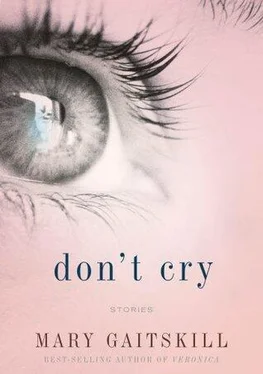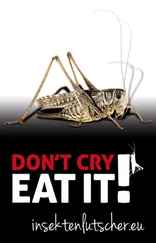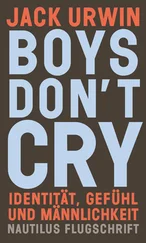Laura lived in a slow, run-down neighborhood, but today there was heavy traffic. She talked to herself as she negotiated the lanes, speeding and slowing in a lulling rhythm. When she talked to herself, she often argued with an imaginary person. This time, she argued about the news story concerning the president's supposed affair with a twenty-one-year-old intern. “Personally, I don't care,” she said. “If it were rape, or if the girl were twelve, I would want him in jail. But if it's consenting adults …” Stopped at the red light, she glanced at the people waiting for a bus. They looked tenacious and stoic as a band of ragged cats, staring alertly down the street or pulled tidily into themselves, cross-legged and holding their handbags as if they were about to lick their paws. “When things are private like that, it's hard to tell what really went on between the two people anyway,” she continued. “Sometimes things that look really ugly on the outside look different when you get up close.” Or feel different.
She had gone to see her father in the hospital in Tucson. Of the daughters, she was the last to arrive, and by the time she'd gotten there, her sisters were fighting with the doctors about their father's treatment. He was too weak to eat, so they'd stuffed tubes down his nose to feed him something called Vita Plus. “His body doesn't want it.” Her sister Donna was talking to the nurse. “It's making him worse.” It was true. As soon as Laura looked at her father, she knew he was going to die. His body was shrunken and dried, already half-abandoned; his spirit stared from his eyes as if stunned, and straining to see more of what had stunned it. “I know,” said the nurse. “I agree with you. But we have to give it to him. It's policy.”
“Hi, Daddy,” said Laura.
When he answered her, his voice was like a thin sack holding something live. He was about to lose the live thing, but right now he held it, amazed by it, as if he had never known it before. He said, “Good to see you. Didn't know if you'd come.”
His words struck her heart. She knelt by the bed. “Of course I came,” she said; “I love you.”
She paused at a crosswalk; there was a squirrel crossing the street in short, halting runs. She stopped traffic for a minute, waiting for it. A woman sitting on a public bench smiled at her approvingly In her pointy shoes, her feet were like little hooves. It made sense she was on the squirrel's side.
They brought their father home to be cared for by hospice workers. By that time, he was emaciated and filled with mucus that he could not discharge through his throat or nose. It ran out of his nostrils sometimes, but mostly they heard it, rattling in his lungs. He couldn't eat anything and he didn't talk much. Because he was too fragile to share a bed with their mother, they put him in the guest bedroom, in a big soft bed with a dust ruffle. The sun shining in the window made his skin so transparent that the veins on his face seemed part of his skin. He blinked at the sun like a turtle. They took turns sitting with him. Laura stroked his arm with her fingertips, barely grazing his fragile skin. When she did that, he said, “Thank you, honey.” He had not called her that since she was a little girl.
When the hospice workers had to turn him, he got angry; his skin had become so thin that his bones felt sharp, and it hurt him to be moved. “No, leave me alone. I don't care, I don't care.” He would frown and even slap at the workers, and, in the fierce knit of his brow and his blank, furious eyes, Laura remembered him as he had been, twenty-five years ago. He'd been standing in the dining room and she was walking by him and he'd said, “What're you doing walking around showing your ass? People'll think you're selling it.” She had been wearing flowered pants that were tight in the seat and crotch.
She arrived at the clinic early and got a good place in the parking garage. On the way up to the seventeenth floor, she shared the elevator with Dr. Edwina Ramirez, whom she liked. They had once had a conversation in the break lounge, during which they both revealed that they didn't want to have children. “People act like there's something wrong with you,” said Dr. Ramirez. “Don't they know about overpopulation? I mean yeah, there's biology. But there're other ways to be a loving person.” She had quickly bent to take her candy bar out of the machine. “You know what I mean?”
Ever since then, Laura had felt good around Dr. Ramirez. Every time she saw her, she thought “ways to be a loving person.” She thought it as they rode up in the elevator together, even though the doctor stood silently frowning and smoothing her skirt. When they got to their floor, Dr. Ramirez said, “See you,” and gave Laura a half smile as they strode in opposite directions.
Laura went to the lounge to get a coffee. Some other technicians and a few nurses were sitting at the table eating doughnuts from a box. Newspapers with broad grainy pictures of the White House intern lay spread out on the table. In one of the pictures, the girl posed with members of her high school class at the prom. She stood very erect in a low-cut dress, staring with focused dreaminess at a spot just past the camera.
“She's a porker,” said a tech named Tara. “Just look at her.”
Laura lingered at the little refrigerator, trying to find the carton of whole milk. Everybody else used 2 percent.
“It makes me sympathize with him,” said a nurse. “He could have anybody he wanted, and he picks these kinds of girls. Definitely not models or stars.”
“That makes you sympathize? I think that makes it more disgusting.”
“But it might not be. It might mean he wants somebody to be normal with. Like somebody who's totally on his side who he can, like, talk about baseball with.”
“What? Are you nuts? She was a homely girl sucking his dick!”
Laura had to settle for edible oil creamers. She took a handful, along with a pocketful of sugars and a striped stir stick. She walked down the empty hall whispering, “Ugly cunt, ugly cunt.”
The day they brought their father home, the plumbing in the bathroom backed up. Sewage came out of the bathtub drain; water seeped into the chenille tapestry their mother had put up around the window. It was like snot was everywhere.
Laura lay with Anna Lee on the foldout couch in the living room. She and Anna Lee had slept close together in the same bed until Laura was fifteen and Anna Lee thirteen. Even when they got separate beds, they sometimes crept in together and cuddled. Now they lay separate even in grief.
Anna Lee was talking about her six-year-old, Fred, an anxious, overweight child with a genius IQ. The kid couldn't make friends; he fought all the time and usually lost. He'd set his room on fire twice. She was talking about a psychiatrist she had taken him to see. In the light from the window, Laura could see her sister's eyelashes raising and lowering with each hard, busy blink. She could smell the lotion Anna Lee used on her face and neck. The psychiatrist had put Fred on a waiting list to go to a special school in Montana, a farm school with llamas the children could care for and ride on.
“I hope it helps,” said Laura.
There was a long silence. Laura could feel Anna Lee's body become fractionally softer and more open, relaxing and concentrating at the same time. Maybe she was thinking of Fred, how he might get better, how he might grow happy and strong. Laura had met the child only once. He'D frowned at her and looked down at the broken toy in his hand, but there was curiosity in his mien, and he was quick to look up again. He was already fat and already bright; he seemed too sorrowful and too angry for such a young child.
“I had a strange thought about Daddy,” she said.
Читать дальше












